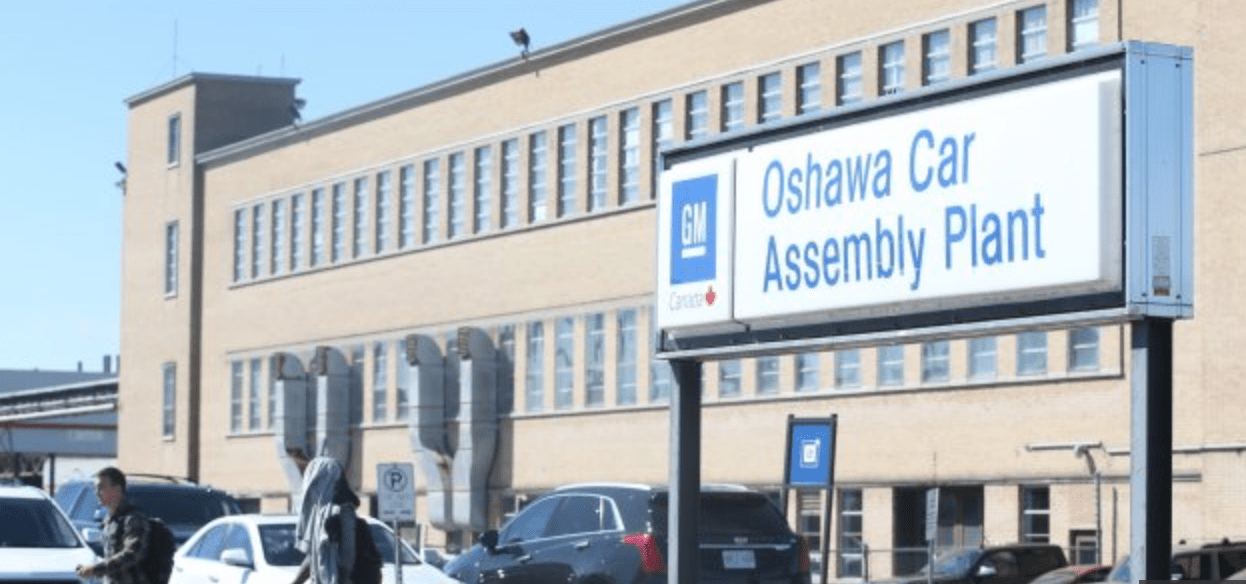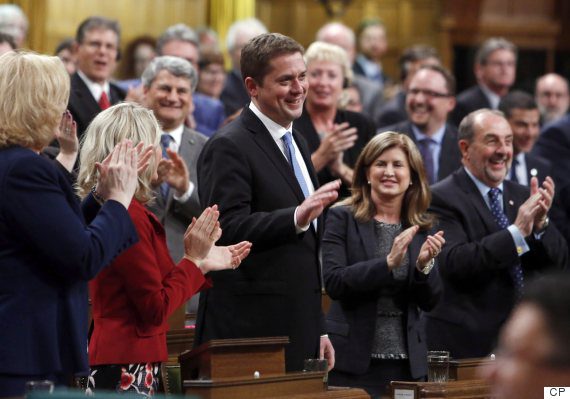In the wake of General Motors (GM) announcing that no new product would be allocated to its facility in Oshawa, Ontario, in 2019, nor to four other facilities across the U.S., much of the blame rightfully went to GM itself. The company is far behind on investing in electric and autonomous vehicle innovation. Competitors such as Toyota and Honda have begun to dominate market for sedans, which are what the Oshawa plant built. The perception of the GM brand is one of low reliability, corporate welfare suckage, and local economic devastation. This closure was, perhaps inevitably, a matter of when, not if.
Don't expect any of this to comfort the nearly three thousand Oshawans who will be out of a job, to say nothing of the plant's suppliers and other businesses depending on the local workforce. GM has finally faced up to its failure to justify their continued employment. It's now up to others, specifically others in government, to answer the first question that came to their minds: "What's next?" Some answers have been worth hearing; others are simply a waste of breath. Let's recap.
Best: Ontario Premier Doug Ford
Ford's term has shaped up to be much more action-oriented than I once predicted. He accepted GM's declaration that the government could do nothing to help, and immediately shifted his focus to unemployment insurance and retraining. One does wonder if he would have shoveled more subsidies onto GM if they'd claimed it was necessary, say, for retooling the facility to build electric vehicles. Luckily, even they aren't that shameless.
Worst: Ontario Opposition Leader Andrea Horwath
It seems Ford's opposite number definitely would have, accusing Ford in a statement of refusing to make the "investments" needed for Oshawans to build "the vehicles of tomorrow." She is absolutely correct that the laid-off workers would rather have jobs than extended EI benefits; nobody is ignorant of this. But GM has determined that some of its facilities are suitable for the vehicles of tomorrow, and none of the five being closed are among them. If they were committed to keeping Oshawa open, they would have retooled the plant accordingly, with or (preferably) without another government check. By pretending this is not the case, Horwath is offering nothing more to Oshawa than false hope.
Worst: Unifor president Jerry Dias
But at least Horwath's economic advice isn't pure poison. For that, we turn to self-appointed labour czar Jerry Dias, calling on the federal government to give "the middle finger" to GM by slapping tariffs of up to 40 percent on any cars the company manufactures in Mexico. His sole concern here appears to be retaliation; were he genuinely concerned with GM's willingness to pay more workers, he would recall that existing tariffs on GM's supply chain may have sped up the shutdowns, if not caused them outright. That he doesn't puts him squarely in the company of . . .
Worst: U.S. President Donald Trump
We shouldn't expect Trump to change the habits of a lifetime and accept even partial or possible responsibility for an outcome he doesn't like. But you'd think, when he spoke to GM CEO Mary Barra, that he would at least pay lip service to the fates of laid-off workers in Ohio, Michigan, and Maryland. Maybe you think "I love Ohio" counts. "You're playing around with the wrong person" meaning himself, he who has probably never so much as changed a tire in his life does not. And what action might he take if GM doesn't open a new plant in the Buckeye State? A 25 percent tariff on all auto exports, except for those from Mexico and Canada. Some people never learn.
Best: Prime Minister Justin Trudeau
Trudeau's responses have been as predictable as possible: He has expressed his disappointment, discussed options for workers with Ford, met with Unifor, and talked on the phone with Trump, all without announcing any specific actions on the federal government's part. It's not much, but he's keeping a cool head, possibly positioning himself as the mediator in future talks between all parties. Not being actively unhelpful counts for more than it may seem.
Worst: Opposition Leader Andrew Scheer
It's one thing to suggest that a federal carbon tax might hurt Canada's business investment climate. But Scheer is eager to have us believe that, had Trudeau offered GM a carbon tax exemption, they might have kept Oshawa open. When Ford said GM told him that no policy change would make a difference, does Scheer think he was lying?
(UPDATE: As this column was going to press, CBC published an article headlined "Doug Ford blames Trudeau's carbon tax for GM plant closure." A closer read of his comments indicates that he blames the carbon tax for a dire outlook for Canadian manufacturing, but not the GM closure in particular. However, he does draw a direct link between GM and business-unfriendly policies, such as high taxes and hydro rates, implemented by former Premier Kathleen Wynne: "If I'd been here for five years, they probably wouldn't have left." Oh, Doug. You were doing so well.)
Written by Jess Morgan








